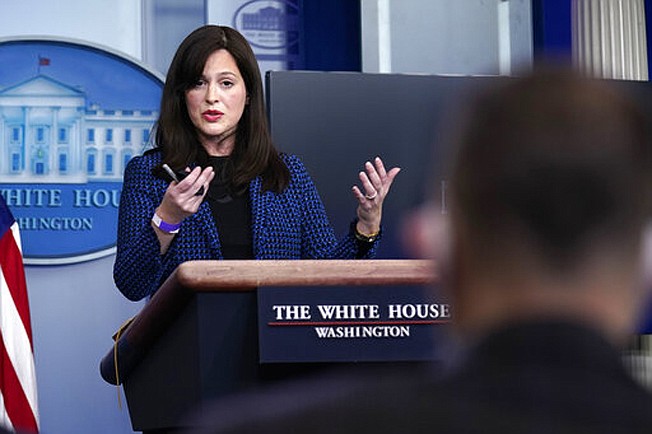WASHINGTON - Jolted by a sweeping hack that may have revealed government and corporate secrets to Russia, U.S. officials are scrambling to reinforce the nation's cyber defenses and recognizing that an agency created two years ago to protect America's networks and infrastructure lacks the money, tools and authority to counter such sophisticated threats.
The breach, which hijacked widely used software from Texas-based SolarWinds Inc., has exposed the profound vulnerability of civilian government networks and the limitations of efforts to detect threats.
It's also likely to unleash a wave of spending on technology modernization and cybersecurity.
"It's really highlighted the investments we need to make in cybersecurity to have the visibility to block these attacks in the future," Anne Neuberger, the newly appointed deputy national security adviser for cyber and emergency technology said Wednesday at a White House briefing.
The reaction reflects the severity of a hack that was disclosed only in December. The hackers, as yet unidentified but described by officials as "likely Russian," had unfettered access to the data and email of at least nine U.S. government agencies and about 100 private companies, with the full extent of the compromise still unknown. And while this incident appeared to be aimed at stealing information, it heightened fears that future hackers could damage critical infrastructure, like electrical grids or water systems.
President Joe Biden plans to release an executive order soon that Neuberger said will include about eight measures intended to address security gaps exposed by the hack. The administration has also proposed expanding by 30% the budget of the U.S. Cybersecurity and Infrastructure Agency, or CISA, a little-known entity now under intense scrutiny because of the SolarWinds breach.
Biden, making his first major international speech Friday to the Munich Security Conference, said that dealing with "Russian recklessness and hacking into computer networks in the United States and the world has become critical to protecting our collective security."
Republicans and Democrats in Congress have called for expanding the size and role of the agency, a component of the Department of Homeland Security. It was created in November 2018 amid a sense that U.S. adversaries were increasingly targeting civilian government and corporate networks as well as the "critical" infrastructure, such as the energy grid that is increasingly vulnerable in a wired world.
Speaking at a recent hearing on cybersecurity, Rep. John Katko, a Republican from New York, urged his colleagues to quickly "find a legislative vehicle to give CISA the resources it needs to fully respond and protect us."
Biden's COVID-19 relief package called for $690 million more for CISA, as well as providing the agency with $9 billion to modernize IT across the government in partnership with the General Services Administration.
That has been pulled from the latest version of the bill because some members didn't see a connection to the pandemic. But Rep. Jim Langevin, co-chair of the Congressional Cybersecurity Caucus, said additional funding for CISA is likely to reemerge with bipartisan support in upcoming legislation, perhaps an infrastructure bill.
"Our cyber infrastructure is every bit as important as our roads and bridges," Langevin, a Rhode Island Democrat, said in an interview. "It's important to our economy. It's important to protecting human life, and we need to make sure we have a modern and resilient cyber infrastructure."
CISA operates a threat-detection system known as "Einstein" that was unable to detect the SolarWinds breach. Brandon Wales, CISA's acting director, said that was because the breach was hidden in a legitimate software update from SolarWinds to its customers. After it was able to identify the malicious activity, the system was able to scan federal networks and identify some government victims. "It was designed to work in concert with other security programs inside the agencies," he said.
The former head of CISA, Christopher Krebs, told the House Homeland Security Committee this month that the U.S. should increase support to the agency, in part so it can issue grants to state and local governments to improve their cybersecurity and accelerate IT modernization across the federal government, which is part of the Biden proposal.

